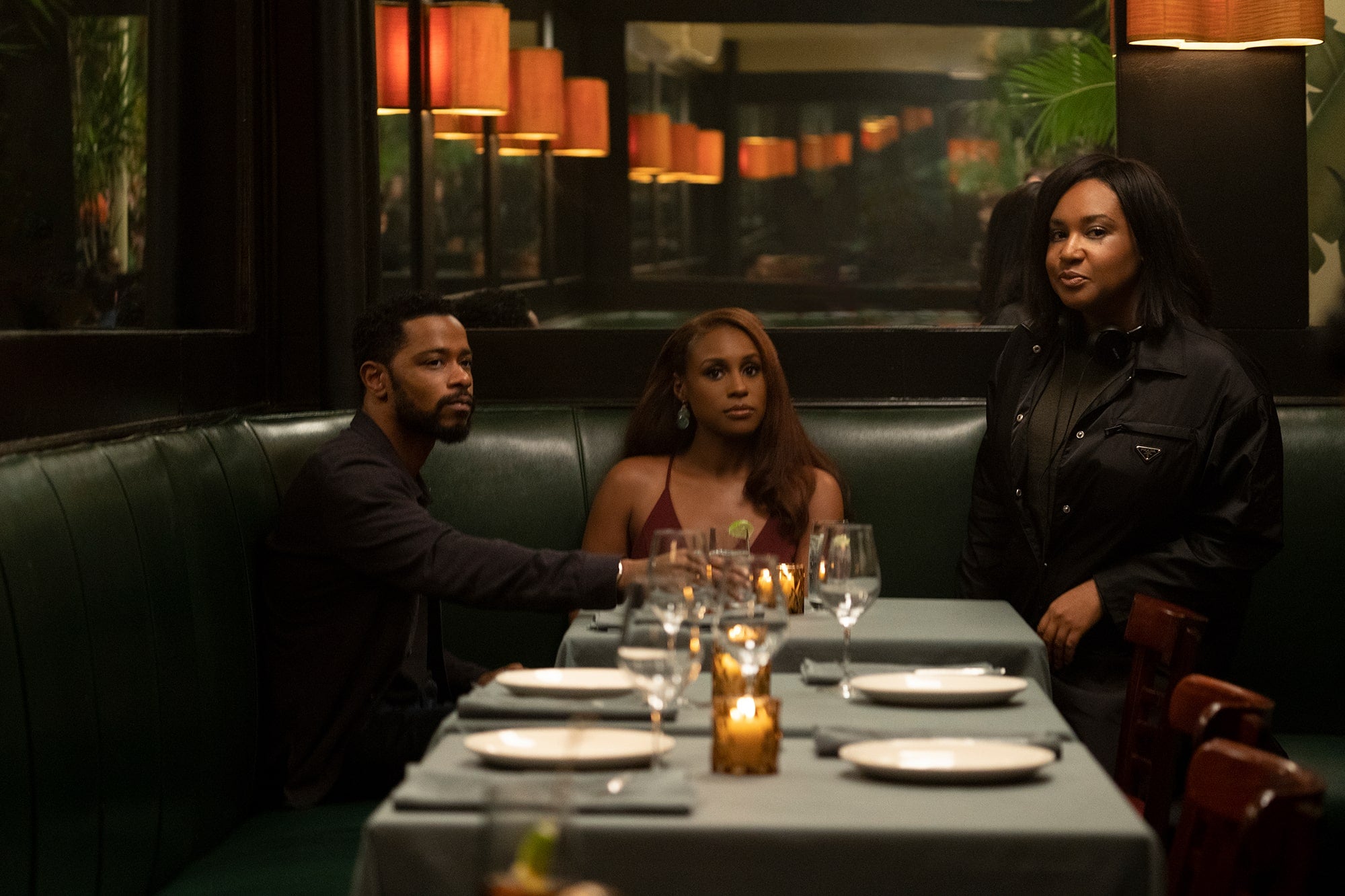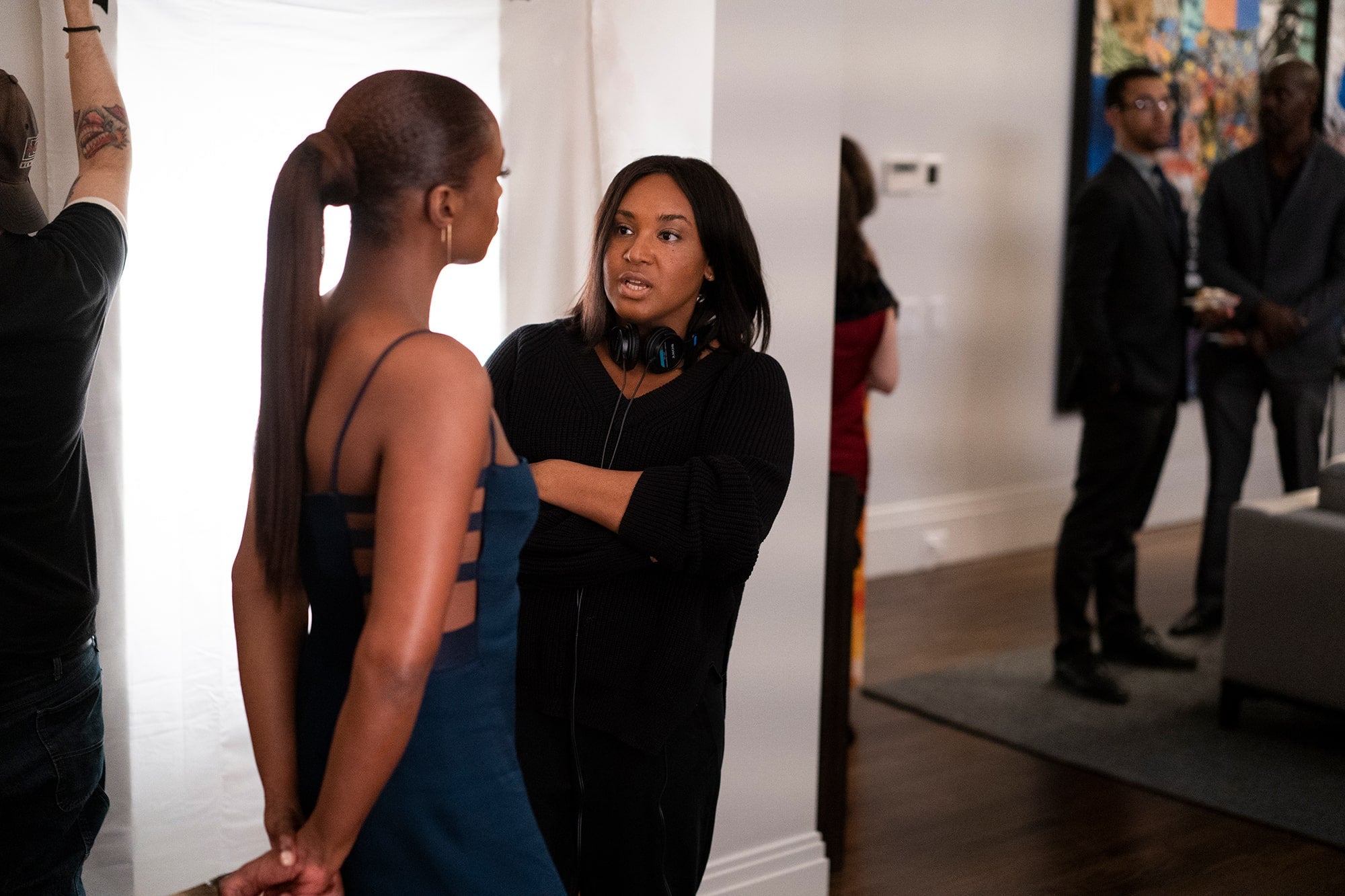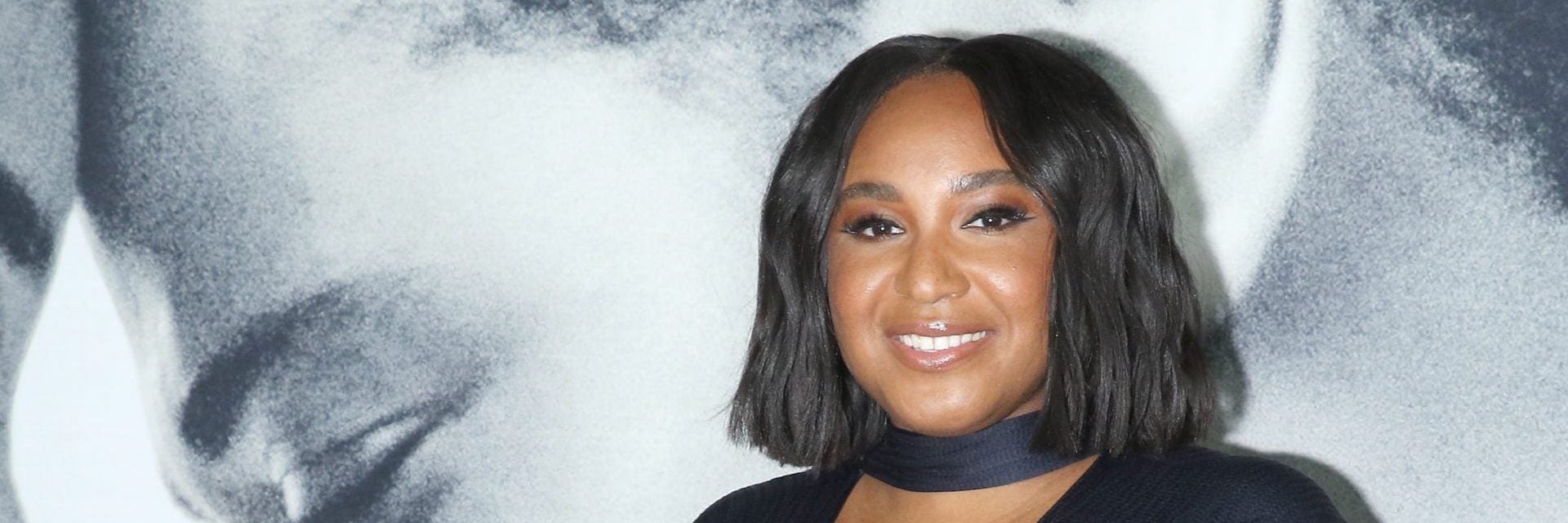Black audiences have been feenin’ like Jodeci for a new romantic movie. And most cinephiles are quick to name Brown Sugar, Love & Basketball, and Love Jones as some of their favorite on-screen affairs. The Photograph’s writer-director Stella Meghie is keenly aware of that. Meghie is a huge Love Jones fan too. The Canadian-born talent can recite Nina, Darius, Savon and Josie’s lines from the cult classic like it hit theaters yesterday, instead of 23 years ago.
Crafting Black women’s tender, funny and layered stories is Meghie’s strawberry jam (see The Weekend and Jean of the Joneses), and her undeniable sweet spot is exploring them via the mother-daughter lens. “I’m trying to figure out how your history and upbringing really affect how open you are to love, how you love, and what hang-ups you might have about marriage,” Meghie shares while chilling at the ESSENCE office.

Dressed in kicks, sweats and an Array T-shirt (a nod to fellow filmmaker Ava DuVernay), Meghie resembles that cool cousin who has it all together. The glam squad is on standby for another appearance later that night.
Meghie’s love is a complex theme as evident in The Photograph, which finds Issa Rae’s Mae doing her best/worst to avoid falling hard for LaKeith Stanfield’s Michael. Mae doesn’t think their relationship is practical, a word no ever uses when it comes to deciphering that sweet four-letter word. Christina, Mae’s mother (played by Chanté Adams), was admittedly better at becoming an adored photographer than she was at love. In fact, ambitious Christina hopped a NYC-bound bus and left her man behind in New Orleans.
Like many artists, Meghie borrows from her life and those around her and then flips each scenario on its head. Mae and Michael’s banter about Drake vs. Kendrick Lamar was lifted from one of Meghie’s dates. (Needless to say this Canadian stans for Drake, yet she admits that “Kendrick is king.”) Bits of the Everything, Everything director’s more serious, closed off side are found in Mae. While Christina shares Meghie’s commitment to work and sense of adventure.
Like Christina, Meghie also boarded a bus in search of a bigger life than the one she knew. She left Toronto to intern for Def Jam and Women’s Wear Daily in the Big Apple. “I’m going to just go after my dreams. I don’t know how it’s going to end, but if I stay home it’s not going to happen. I feel like [Christina’s] journey of just moving to New York was my journey,” Meghie says, happy and unapologetic about that life-altering decision. “I had to leave Toronto to come to L.A. There’s men in my life that I’ve left behind that another woman probably would’ve stayed and married.”
This sentiment seems opposite from someone who writes beautifully about love. But it’s related to some sage advice the former public relations pro’s grandmother shared. (Meghie had a whole life in public relations before she decided to pursue filmmaking in 2009.) The woman who migrated from Jamaica to Montreal was crystal clear. She told her granddaughter to: “Focus on your career and getting your life together,” recalls the London-trained screenwriter.
And she did—and Meghie took a bunch of stories with her.

In fact, The Photograph is inspired by her grandmother’s relationship with a daughter she hadn’t seen in 30 years. “[My grandmother] passed away four years ago. She would’ve been mad if I was telling this story,” Meghie says, a reflective smile on her full lips. “She was very private. But maybe now she’s enlightened. She’s gone and she’s not mad at me right now.”
On the eve of The Photograph’s release this Valentine’s Day weekend, someone online wrote that the film shouldn’t be labeled a Black love story because love is universal, plus it limits our marketing potential. Meghie sips a cup of water. She understands this viewpoint. “I feel both sides. Sometimes, I think [the mainstream] doesn’t call their stories white love. It’s just love. Why are you boxing us in?” Meghie asks no one in particular. The freckles on her cheeks and nose appear to dance as she speaks. “But Black love means something to us. Maybe I just like talking about Black love with Black publications. Because we celebrate ourselves with how we see things, with how we see our culture.”
Check out The Photograph in theaters now.

